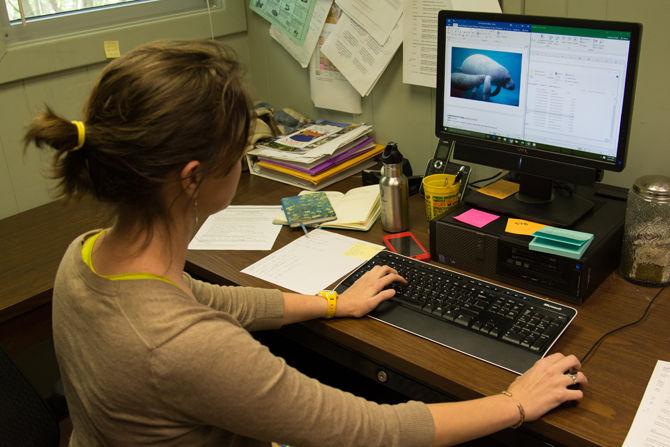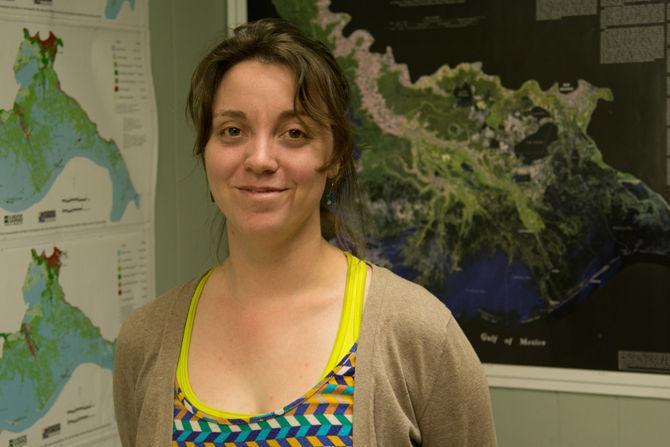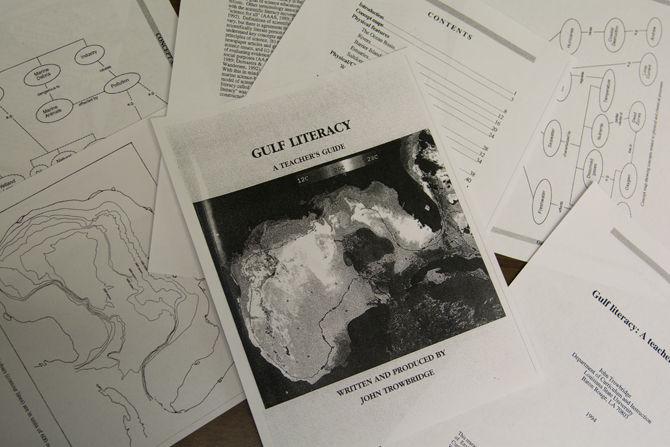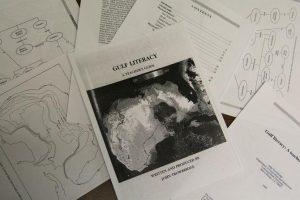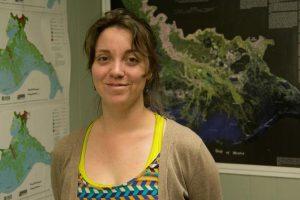Geography and anthropology graduate student Lauren Hull is working to promote gulf literacy among the next generation of Louisiana residents.
Hull, the education graduate assistant for the Louisiana Sea Grant program, is curating a gulf literacy resource for teachers across the state to incorporate into their classroom curricula. The resource will serve as a one-stop-shop for information on the gulf, its ecosystems and its effect on the state, Hull said.
Development of the resource began with the 1994 dissertation of then-University PhD student John Trowbridge, who created the original material in response to a push for scientific literacy in schools. Scientific literacy encourages the understanding of basic scientific concepts and principles to promote informed decision-making, Hull said.
Gulf literacy, a form of scientific literacy, is especially important because of Louisiana’s strong ties to the Gulf of Mexico, she said.
“Being aware of the Gulf of Mexico and its resources is very important to our economy and our culture and of course to the environment as well,” Hull said.
Hull said her passion for environmental education is driven by a desire to affect significant change among populations. Through her studies in ecology and biology, Hull said she discovered education is the key to change.
Louisiana has a low mobility rate among its residents, with most remaining in the state or returning to live in the state as adults, she said. Having an informed citizenry is crucial to future policy decisions.
Educating residents, beginning with children, can often spur greater change over time than simply contacting legislators or lobbying for change, she said.
“I decided that starting young and doing K-12 education is the key to changing the way we see the environment, the way we take care of it and the way we be good stewards,” Hull said. “I think it creates a systemic shift in our stewardship practices.”
Hull said she plans for the literacy resource to be available through a comprehensive website where educators can search terms and subject matter to tailor the material for their lesson plans. The material is geared toward third through twelfth grade students, but the lesson plans can be adapted for younger students, she said.
The resource will include a number of topics and categories, including physical features, physical and chemical processes, human communities and environmental issues that impact the Gulf of Mexico, among others. Each topic includes key facts, lesson plans and diagrams that are easily accessible to teachers and students, she said.
Dianne Lindstedt, the education coordinator for Louisiana Sea Grant and Hull’s supervisor, said the resource’s succinct, people-friendly writing style will make it easy for teachers to introduce the material into their classrooms. Additionally, the resource’s interesting topics should excite children’s curiosity and encourage deeper learning, she said.
Lindstedt said Sea Grant staff have been developing the resource for years, but there hasn’t been a dedicated staff member working on the project until Hull’s arrival.
Since she began work on the project four months ago, Hull said plans for the resource have expanded from Trowbridge’s 19 original topics to 45, providing an extensive base of information for teachers to draw from.
Hull said she has reached out to graduate students to develop the necessary content, offering graduate students in the College of the Coast and Environment and the geography and anthropology department contributing authorship in exchange for writing content for the resource.
The relationship is mutually beneficial, providing Hull with a variety of perspectives for the material and giving graduate students the opportunity to practice communicating their work to the general public. Eight graduate students are working on the project, Hull said.
Hull said her goal is to complete the project in December and begin presenting the resource at teacher workshops beginning in spring 2017. If grant funds can be acquired, Hullsaid she hopes to expand the resource to other gulf states.
Graduate student develops gulf literacy resource to promote understanding of ecosystem, effects on state
April 17, 2016
Professors in the College of Science are expanding literature about the Gulf of Mexico and our ecosystems that will be used in schools across the state.
More to Discover


